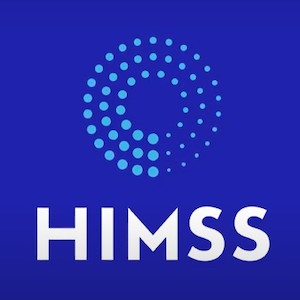Students/Faculty

UAB MSHI students win back-to-back Case Competition national championships
For the second year in a row, a student team from the University of Alabama at Birmingham M.S. in Health Informatics (MSHI) program wins the Healthcare Information and Management Systems Society (HIMSS) Student Case Competition.
Read more
Sue Feldman named to HIMSS21 Health and Safety Panel
Sue Feldman, R.N., Ph.D., director of the UAB Graduate Programs in Healthcare Informatics, is 1 of only 4 subject matter experts selected by the Healthcare Information and Management Systems Society (HIMSS) for the HIMSS21 health and safety panel.
Read more
Kerry McAlpine 1 of 6 among first to be named UAB VIP
Kerry McAlpine, administrative supervisor for our Department of Occupational Therapy, is one of the first six honorees of the UAB Shared Values in Action Program (UAB VIP Award), launched in January to honor employees whose work exemplifies and embodies one or more of values of integrity, respect, diversity and inclusiveness, collaboration, excellence and achievement, accountability and stewardship.
Read more
Ria Hearld honored for 'compassion, diplomacy and resolve' in support of UAB, shared governance
Kristine Ria Hearld, Ph.D., associate professor in the Department of Health Services Administration, director of the doctoral program in Administration-Health Services and past chair of the UAB Faculty Senate, will receive the 2021 President's Award for Excellence in Support of UAB and Shared Governance.
Read more
Feldman receives HIMSS Changemaker in Health award
University of Alabama at Birmingham professor Sue Feldman, R.N., Ph.D., is one of 11 people around the world named a recipient of the Healthcare Information and Management Systems Society (HIMSS) Changemaker in Health Award. The award is determined by a public vote, making it a unique representation of the voices of the health care industry.
Read more
Goss receives $3 million NIH grant for family-based diet intervention treating fatty liver disease in adolescents
Amy Goss, Ph.D., assistant professor in the UAB School of Health Professions’ Department of Nutrition Sciences, has received a $3 million R01 grant to implement a family-based diet intervention to treat fatty liver disease and obesity in adolescents.
Read more
MSHA student Ibukun Afon named Albert Schweitzer Fellow
The Albert Schweitzer Fellowship of Alabama (ASF) announced Ibukun Afon, a student in the UAB School of Health Professions’ M.S. in Health Administration program (Class 56), as a member of its 2021-22 class of Alabama Schweitzer Fellows. Afon is one of 14 graduate students from UAB, the University of Montevallo, and Samford University chosen to spend the next 13 months immersed in community public health projects.
Read more
Krystle Glasgow elected president-elect of SNMMI Technologist Section
Krystle W. Glasgow, MIS, CNMT, NMTCB(CT), NMAA, FSNMMI-TS, clinical coordinator in the UAB M.S. in Nuclear Medicine Technology program, has been elected as the 2021-2022 president-elect of the Society of Nuclear Medicine and Molecular Imaging Technologist Section (SNMMI-TS). This is a three-year commitment as president-elect, president, and past-president of this national society.
Read more
Who will benefit from new ‘game-changing’ weight-loss drug semaglutide?
For decades, Americans have fought a losing battle with obesity. Between 1960 and 2010, the prevalence of adult obesity in the United States nearly tripled, to 36% from 13%, according to the Centers for Disease Control and Prevention. It isn’t as if many Americans don’t recognize the problem. According to 2018 data from the National Health and Nutrition Examination Survey, just under half of adults in the United States (49.1%) tried to lose weight in the prior 12 months. Nevertheless, according to CDC data, the obesity rate that year rose to a record 42.4%.
Read more
MSHA student Lauren White selected for state innovation project, partnership with Stanford University
Lauren White, a student in the UAB School of Health Professions’ M.S. in Health Administration program, is one of eight UAB students selected as Hoover Fellows, an initiative enabling students to be a part of advancing education, economic development, technology, business and innovation in the state.
Read more
Barry, Richardson win UAB Barker Award for Excellence
Valene Garr Barry and Angela Richardson, students in our Department of Nutrition Sciences, have been honored by the UAB Graduate School as recipients of the 2021 UAB Samuel B. Barker Award for Excellence in Graduate Studies.
Read more
Drew Sayer named inaugural Ronald L. and David B. Allison Endowed Scholar
Drew Sayer, Ph.D., assistant professor in the UAB Department of Nutrition Sciences, has been named the inaugural Ronald L. and David B. Allison Endowed Scholar. This award was established to provide support for junior faculty within the department who do not yet have RO1 funding from the National Institutes of Health.
Read more
Four in SHP honored for elevating UAB’s shared values
Four faculty and staff from the School of Health Professions have been selected to receive the inaugural President’s Award for Excellence in Shared Values. The award honors Blazers who demonstrated one or more of UAB’s shared values in the course of their work during the extraordinary times presented by the COVID-19 pandemic.
Read more
BMD student Ferguson named Fulbright semifinalist
Allyson Ferguson, a senior in our B.S. in Biomedical Sciences program and a member of UAB Honors College, has been named a semifinalist in this year’s Fulbright U.S. Student Program competition.
Read more
Ithurburn, Qu win inaugural SHP faculty grant awards
The UAB School of Health Professions has awarded inaugural faculty grants to Matt Ithurburn, Ph.D., assistant professor in the Department of Physical Therapy, and Haiyan Qu, Ph.D., associate professor in the Department of Health Services Administration.
Read more
MSHA students have “day on” for MLK Day of Service
Students in the UAB M.S. in Health Administration program (Class 56) had a “day on” rather than a “day off” on Martin Luther King, Jr. Day.
Read more
SHP Student Awards - Fall 2020
The School of Health Professions (SHP) Student Awards, for the fall semester of 2020, were managed by the Student Affairs Committee (SAC) with endorsement from the Program Directors. Due to COVID-19, we were not able to recognize our exceptional students with an award ceremony. Nonetheless, it does not diminish their excellence or their accomplishments.
Read more
Service and Service-Learning highlight the end of 2020 for SHP
Many members of the School of Health Professions made service and service-learning a priority at the end of 2020. The SHP Staff Council hosted an SHP-wide holiday drive and the freshman course HRP 101: Experiencing the University Transition for Health Professions saw 14 teams of students support 11 community partners.
Read more
Krystle Glasgow named Fellow of SNMMI Technologist Section
Krystle Glasgow, CNMT, NMTCB(CT), NMAA, a teacher in the UAB School of Health Professions, has been recognized as a Fellow by the Society of Nuclear Medicine and Molecular Imaging – Technologist Section. She is one of only three in the state of Alabama to earn the prestigious honor.
Read more
Hope Gray awarded national AMIA LEAD Fund Scholarship
Hope Gray, MTS, BCC, a student in the UAB Doctor of Philosophy in Administration-Health Services program – Health Informatics track, has been awarded the American Medical Informatics Association (AMIA) Leadership and Education Award (LEAD) Fund Scholarship. She is one of only two to earn the award.
Established in 2016, the AMIA LEAD Fund is focused on supporting membership diversity, trainee engagement and developing future AMIA leaders.
“I am honored to have been selected as an AMIA LEAD Fund Scholarship Awardee this year,” said Gray who is a Board-Certified Chaplain with training in ethics, empathy and diversity, equity and inclusion. “I presented my PhD work to AMIA members and gained meaningful feedback for which I am thankful.”
“We are grateful to AMIA for seeing the value in developing future Health Informatics leaders with the LEAD fund. Their mission in doing so is very much aligned with the mission of UAB’s Graduate Programs in Health Informatics and further develops our students to lead and innovate in the field,” said Sue Feldman, RN, MEd, Ph.D., director, Graduate Programs in Health Informatics.
Gray has participated in the AMIA Clinical Informatics Conference (CIC) as well as several JAMIA Journal Clubs. In addition, she is a member of many AMIA workgroups including:
- AMIA First Look
- Clinical Information Systems
- Clinical Research Informatics
- COVID-19 Community & Discussion Forum
- Natural Language Processing
- Student Working Group
- Women in AMIA Discussion Forum
The AMIA LEAD Fund promotes the value of informatics in transforming health and healthcare by awarding scholarships and research, highlighting innovation and discovery, recognizing professional achievement, and promoting leadership and advocacy.